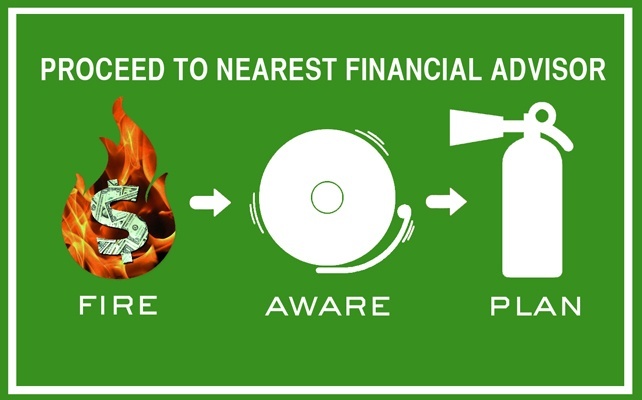
How to Hold a Financial Fire Drill

Former director of financial services at Dimensional Fund Advisors, now retired, Dan Wheeler continues to share financial insights on his personal blog. In his post, “Fire Drill,” Wheeler recommends practicing what you will do the next time the markets drop, especially if the declines are as precipitous as they were during the financial crisis in 2007–2008. Otherwise, he observes, now that the pain we experienced then has started to fade, we risk replacing it with “a false sense of security going forward.”
Mind Over Money
An important part of running your financial fire drill is to touch base with your mindset on money. As Behavior Gap author Carl Richards has observed: “It’s not a good idea to figure out how a parachute works after you jump out of the plane.” In other words, by training today for tomorrow’s troubles, a little advance planning can go a long way when (not if) the markets or your personal finances experience turbulence.
In his article, “So You Think You’re a Risk Taker?” Wall Street Journal columnist Jason Zweig describes how a Journal of Neuroscience study used brain scans to show that “the density of cells in one region of the brain predicts how willing people are to take financial risk.” Other studies have shown that we also distort our own memories about our past investment skills.
This means it’s important to maintain a grip on your actual risk tolerance, before you discover the “real you” the hard way.
Be True to Yourself
While it would seem impractical to measure your risk tolerance with an actual brain scan, Zweig offers some fire-drill questions to consider as honestly as you’re able. For example:
- Actions speak louder than words, so how did you really respond to the 2007-2008 markets?
- Do you have a set of practiced rules to guide your investment habits, so you can more easily ignore panic when it occurs?
- To further combat feelings of financial panic, do you have a sufficient safety net of easily accessible assets, without having to sell off any longer-term holdings?
We would add one more important question: Do you have a relationship with a financial advisor, to help you run your proper drills and be upfront with you if you aren’t being fully honest with yourself on all of the above?
Put It in Writing
These are some of the mindful matters to consider in a financial fire drill. There also is an important practical matter: your written Investment Policy Statement (IPS). Like Richards’ aforementioned parachute, you want to build, maintain and definitely practice “operating” your IPS long before your financial life may depend on it. In our next post, we’ll cover the logistics involved.
 Sage Serendipity: Practice makes perfect, in finance and for Fido. He’s got rhythm: “Dog Dances With Its Ears.”
Sage Serendipity: Practice makes perfect, in finance and for Fido. He’s got rhythm: “Dog Dances With Its Ears.”
 Secure Document Sharing
Secure Document Sharing


